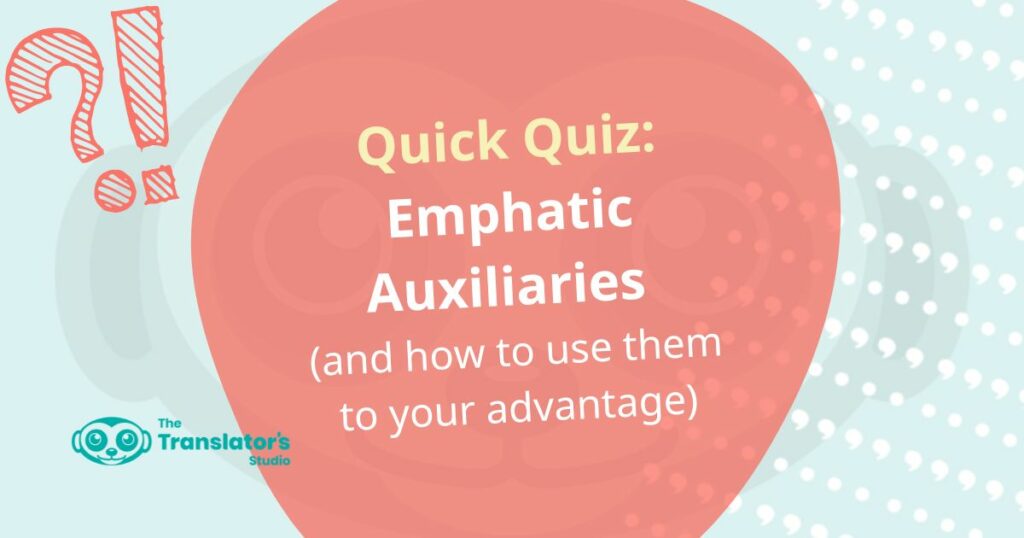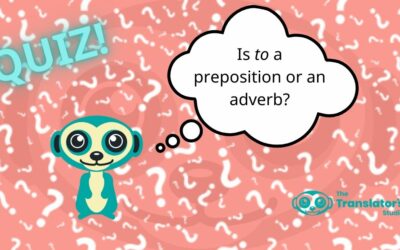The grammar term emphatic auxiliary might seem a bit of a mouthful and maybe you’re thinking you’d never use one of those. But you do use them, honest! See what I did there? If you’re still confused, read on for more information. Feeling confident? Then try our quiz!
Emphatic Auxiliaries are used for emphasis
Looking for a way to make your writing sound more idiomatic? Emphatic auxiliaries are a useful grammar device to add emphasis. Whether you know all about them or this is news to you, try our grammar quiz to find out what you know and refresh your knowledge. Answers, examples and explanations at the end!

Quiz on emphatic auxiliary verbs
1. True or false? When you’re speaking and you use the emphatic do in positive sentences, it’s always stressed.
2. True or false? You can use the emphatic do in the present simple form to strengthen/emphasise an imperative.
3. Which parts of the sentence can use an emphatic do? Ian doesn’t have a car and (go) to work by train every day. He doesn’t have to wait very long, but he (have to) change trains once.
4. Is this sentence correct? I don’t think I’ll go to the concert tomorrow. Well if you do go, can you buy me a T-shirt?
5. True or false? Emphatic auxiliaries can also be used to make it clear we feel strongly about something.
Scroll down for the answers!

What are emphatic auxiliaries?
Emphatic auxiliaries are formed by using the auxiliary do (does, do not, did, etc.) where it isn’t strictly needed. They’re used to add emphasis. They come into play when you want to emphasise what you’re saying or negate it.
Answers to the quiz on emphatic auxiliary verbs
1. True, we always stress it when speaking, e.g. “I must say I did enjoy that party last night.”
2. True, e.g. “Do stop talking, will you?”
3. Ian doesn’t have a car and goes to work by train every day. It’s not a long journey, but he does have to change trains once.
4. Yes, the question uses an emphatic do correctly.
5. True. Using an emphatic auxiliary verb to highlight that you feel strongly about something is sometimes called emotive emphasis.
Click to Tweet: Emphatic auxiliaries are everywhere, but do you know how to use them? Take our quiz and test yourself on this grammar device!
Want to learn more about advanced English grammar?
Check out our top picks for books to learn advanced English!




0 Comments